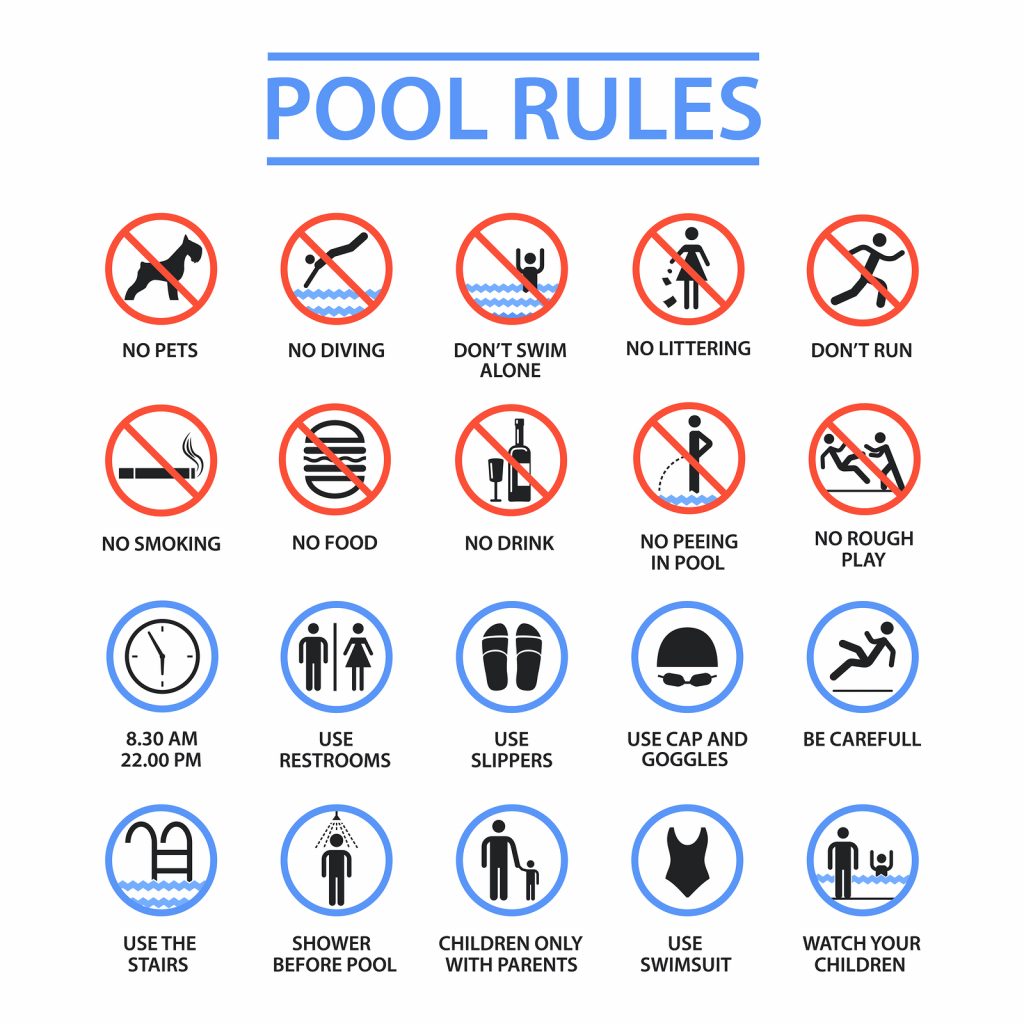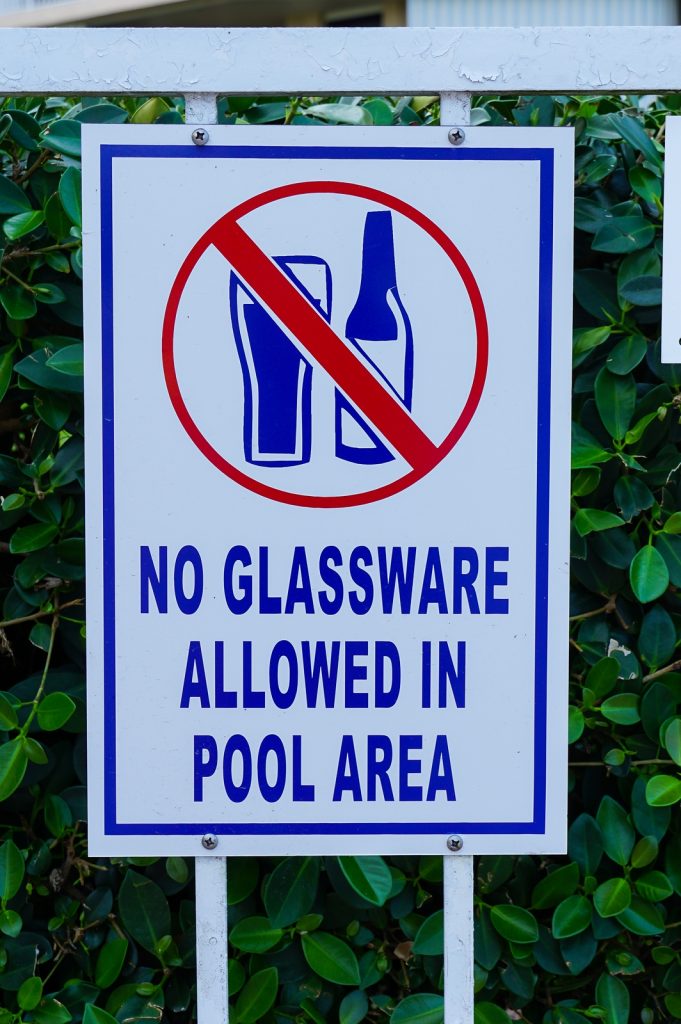Certified Pool Technician Responsibilities – Making A Safer Swimming Facility
So many aspects of what a certified pool technician does is dedicated to maintaining a safe swimming facility. This involves everything from properly balancing water chemistry to having the proper rules in place. Someone visiting your swimming facility for the first time is at the greatest risk of injury because they may be unaware of the rules that keep the facility functioning properly. All federal, state, local and personal swimming regulations must be posted with clear signage.
Proper Signage
First-time swimmers must be aware of all safety rules before being allowed to enter the water. This requires visible and legible signage at the entrance to the swimming facility and in plain view throughout. Pool rules should be written in simple-to-understand language. If the facility is in a diverse community, consider multi-language signs so all swimmers are equally protected.
Pool Rules
While legal guidelines establish a baseline for required rules at a swimming facility, a safe swimming facility requires a comprehensive set of rules that suit it. A certified pool technician must analyze their situation and devise the best set of rules for their facility. As swimming pool experts, Pool Operation Management recommends the following at every facility.
- Never allow anyone to swim alone.
- Children must be supervised at all times.
- Supervisors of children must be a capable and responsible caretaker.
- Consumption of food, alcohol, and drugs are prohibited.
- No glass containers are allowed in the swimming facility.
- Diving or jumping from the deck into the diving board area is prohibited.
- No throwing objects.
- All horseplay, such as running, dunking, and shoving are strictly prohibited.
- Profanity, intoxication, and other forms of improper behavior are prohibited.
- No use of electrical appliances is allowed near the pool.
- No swimmers with stomach conditions like diarrhea should enter the pool.
- No entering the pool without showering beforehand.
- Changing diapers outside of the restroom is prohibited.
- Swimming outside designated areas is prohibited.
- No swimmers can remain in the pool during electrical storms.
- No swimming without a lifeguard on duty is allowed.
- All “hold your breath” games must be strictly prohibited.
Other swimming pool rules can not be applied universally, as they apply to individual swimming pool capacity, hours of operation, etc. A certified pool technician should assess their unique facility and legal guidelines to formulate these rules. Keep in mind, any aquatic facility has the right to post additional rules as long as they are not discriminatory in nature.
Non-Swimmers
Those who do not know how to swim or are still learning to swim are at a much greater risk of an accident occurring. Non-swimmers should be advised to remain in water no deeper than shoulder depth. Non-swimmers should only enter deeper areas of the pool with proper supervision. This goes for every age group.
A floating lifeline, also called a safety line, can be used to indicate the transition between the shallow and deep ends of the pool. Local codes may specify the exact location, but industry guidelines say it should be placed between 1 and 2 feet toward the shallow end from the transition. Some local codes require the floating safety line to be in place at all times except when the pool is under the supervision of a lifeguard or a swimming coach. Non-swimmer should also be encouraged to wear life jackets but this should not take the place of supervision.
Certified Pool Technician Training
The best way to understand swimming pool safety is to become a certified pool technician. You can learn from the experts and become CPO® certified at Pool Operation Management. Pool Operation Management’s award-winning CPO training courses train you on how to properly operate a swimming pool or spa facility. Our two-day courses offer a wealth of information and training in everything from pool chemicals to energy conservation to risk and liability. For the very best in pool operation, contact us today.








